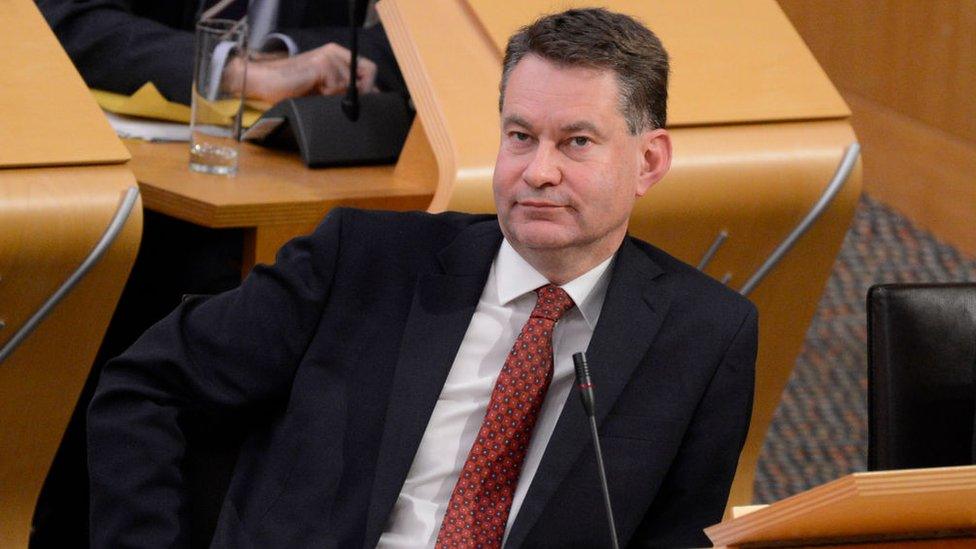Conservatives set out terms to support Scottish budget
- Published

Murdo Fraser has set out the Scottish Conservatives terms for supporting next month's draft budget
The Scottish Conservatives will back the forthcoming budget if finance secretary Derek MacKay pledges not to raise taxes.
The party's finance spokesman Murdo Fraser called on the Scottish government not to cut money for public services.
Mr Fraser also said more cash for the NHS, higher education and policing was imperative to get his party's support.
Mr MacKay is to announce the draft budget plans on 6 February.
The SNP is short of an overall majority at Holryod and in recent years has turned to the Scottish Greens for support to pass its budget.
The Scottish Conservatives said Scotland was about toreceive "the highest block grant in a decade" as a result of the Barnett Formula.
Derek Mackay has been critical of the UK government's approach to the budget process
Mr Fraser said: "There can be no justification for additional tax rises or further cuts to public spending against this backdrop.
"The two areas that we view as priorities for this budget are measures to grow the Scottish economy and support for vital public services.
"We will assess any budget proposals from the SNP government against these priorities."
'Disgraceful delay'
The budget was delayed due to the general election in December and uncertainly about the size of the block grant, which is dependent on UK government spending.
Finance Secretary Derek Mackay has decided to go ahead with his budget before the UK budget, and the Treasury has promised to provide information to inform his decisions.
A spokeswoman for Mr Mackay said: "We are speaking to all opposition parties ahead of the budget - and there is an onus on every party to act responsibly given the UK Tory government's disgraceful delay to their own budget, which has completely ignored Scotland and the urgent need for certainty in public service funding.
"The Tories at Holyrood are keen to suggest where more money could be spent but fail to say what they would cut - and their spending suggestions in previous years would have seen tax cuts for the wealthiest while depriving our NHS and other key services of more than half a billion pounds a year."
- Published13 January 2020